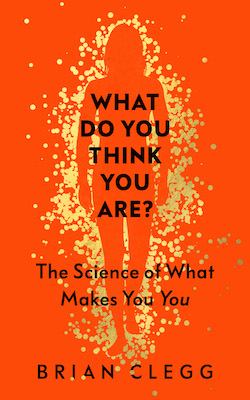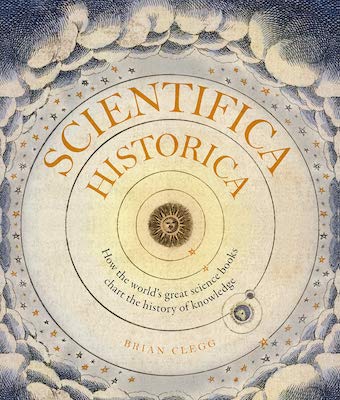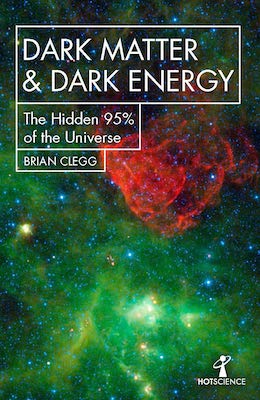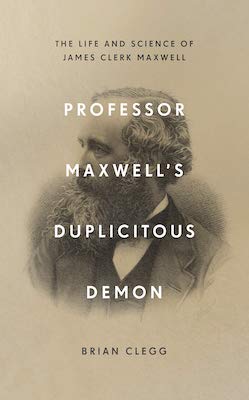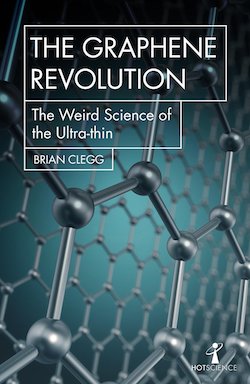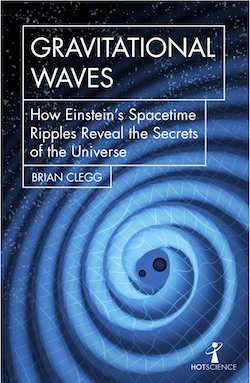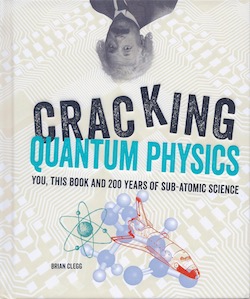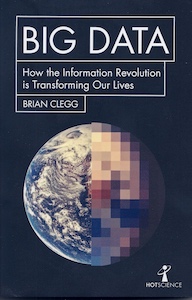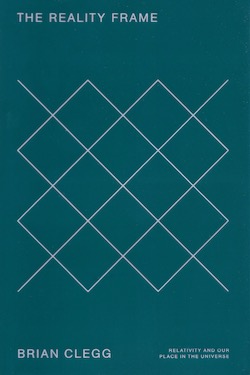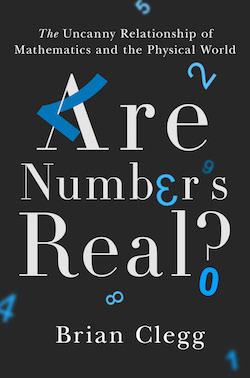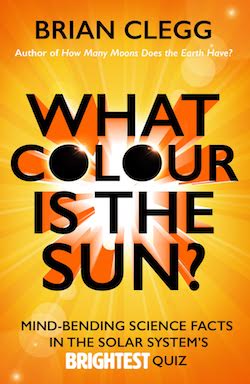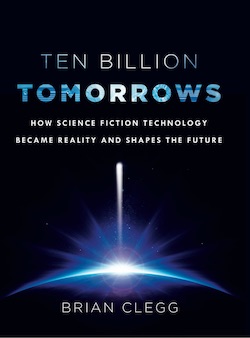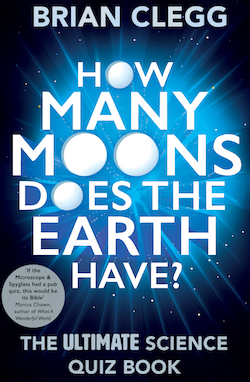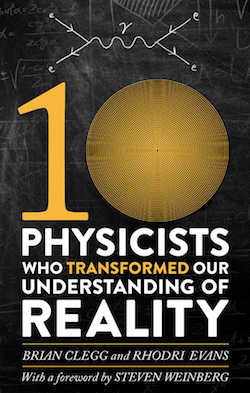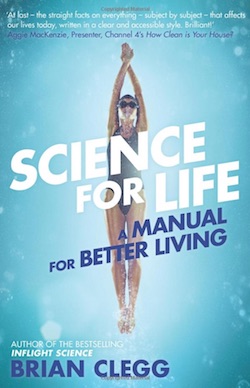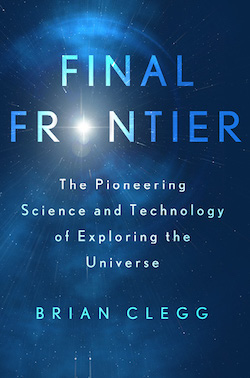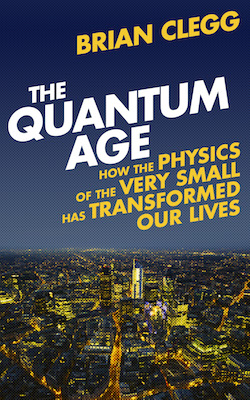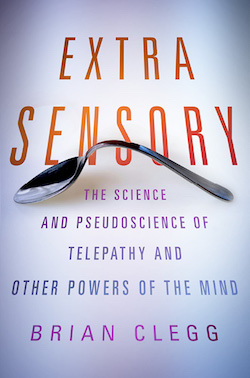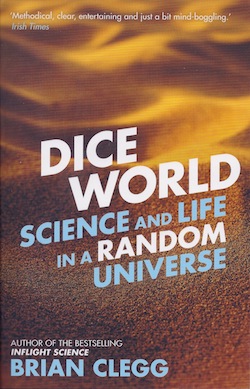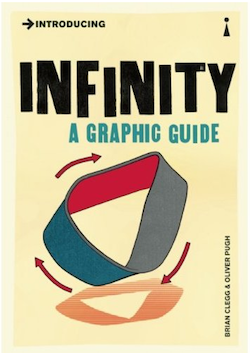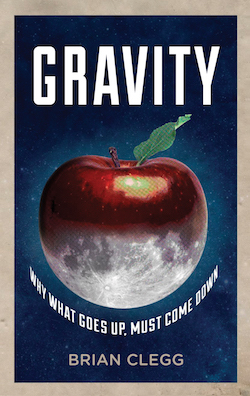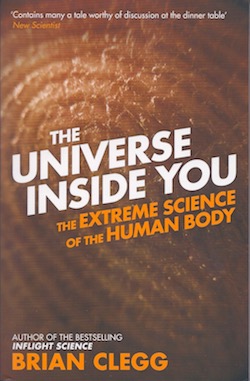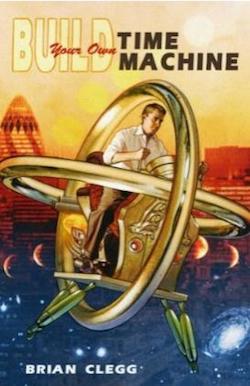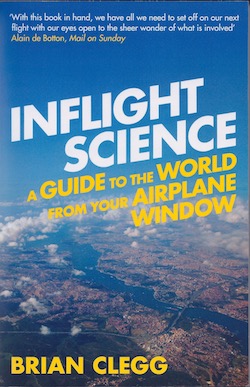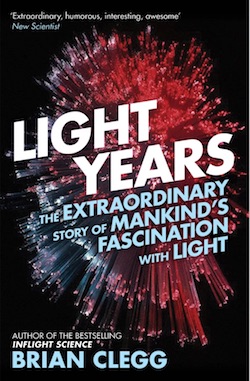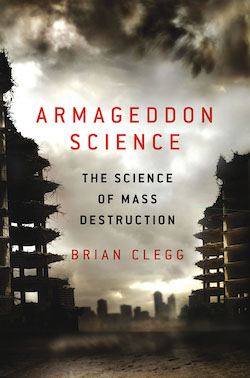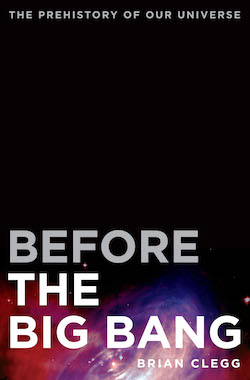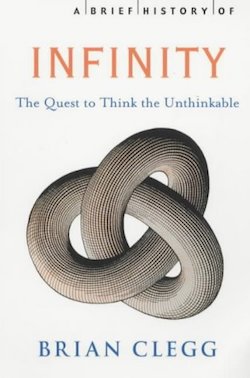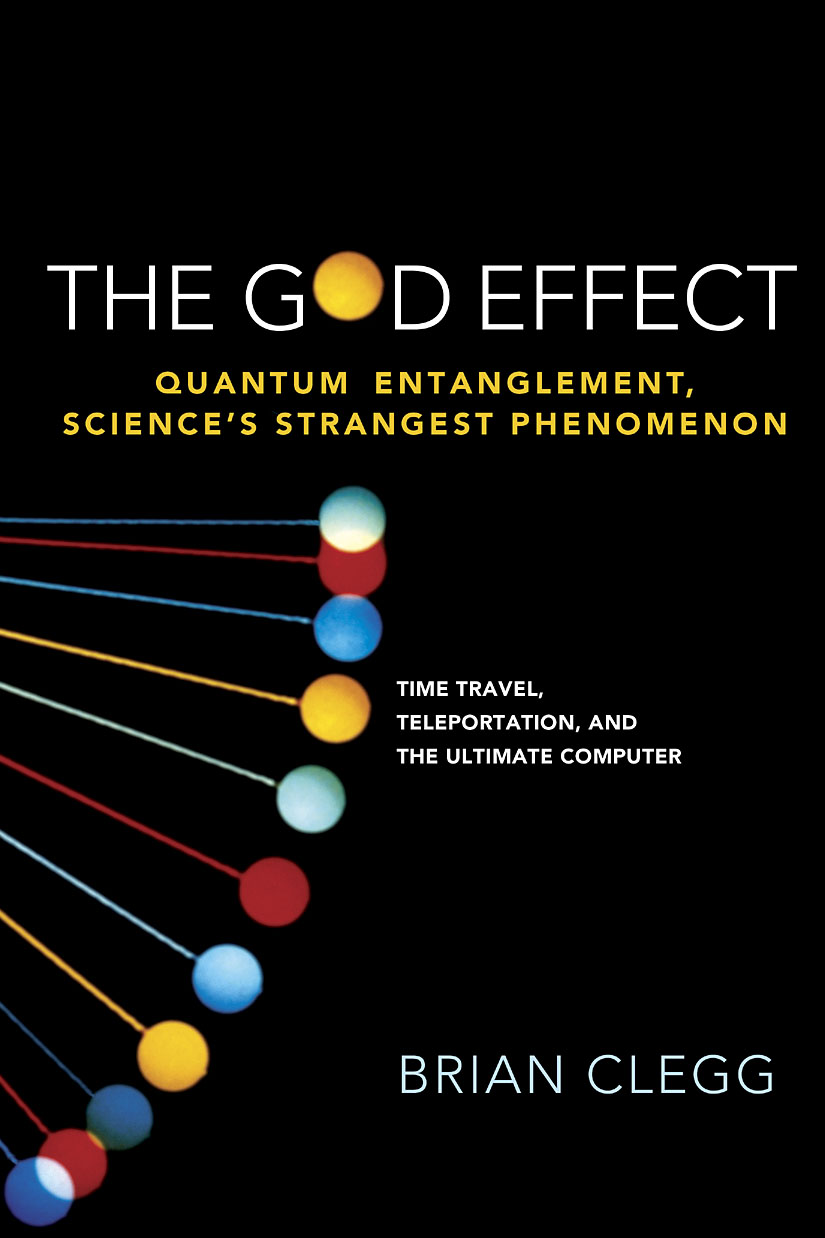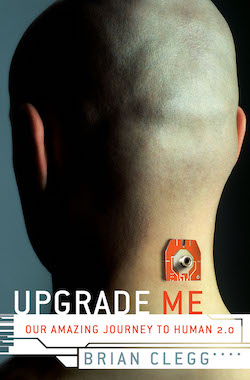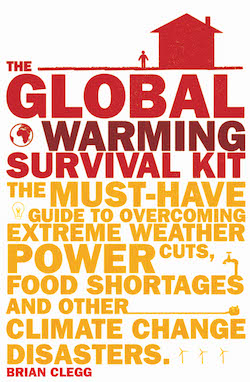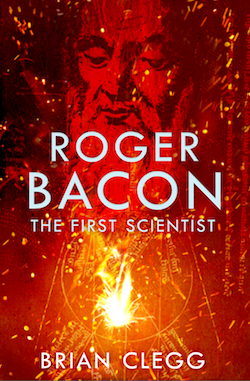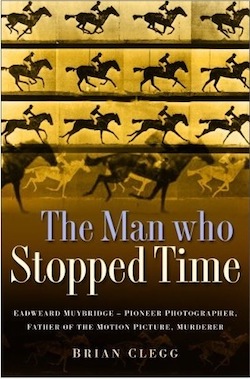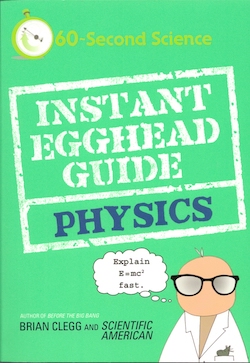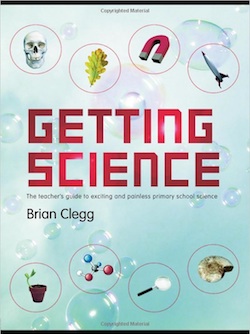Brian Clegg
Professor Maxwell's Duplicitous Demon
Asked to name a great physicist, most people would mention Newton or Einstein, Feynman or Hawking. But ask a physicist and there's no doubt that James Clerk Maxwell will be near the top of the list.
From a long view of the history of mankind… the most significant event of the 19th century will be judged as Maxwell’s discovery of the laws of electrodynamics.
The Graphene Revolution
In 2003, Russian physicists André Geim and Konstantin Novoselov found a way to produce graphene – the thinnest substance in the world – by using sticky tape to separate an atom-thick layer from a block of graphite.
What these guys did not realise was that throwing away the Scotch tape they were throwing away the Nobel Prize as well.
Gravitational Waves
In 2015, after 50 years of searching, gravitational waves were detected for the first time an astronomy changed forever. In 2017, the project's leading scientists were awarded the Nobel Prize in Physics.
Transforms a frustrating, century-long tale of disappointment into a gripping human drama
Big Data
Access to vast quantities of data and algorithms to automatically sift through it, combine it and use it to make decisions is transforming our world. It can be very powerful or very dangerous - Big Data explains why.
Throughout Big Data’s highly enjoyable pages, the spread and range of material is highly impressive…
The Reality Frame
In his most wide-ranging book, Brian Clegg builds up reality piece by piece, from space, to time, to matter, movement, the fundamental forces, life, and the massive transformation that life itself has wrought on the natural world. He reveals that underlying it all is not, as we might believe, a system of immovable absolutes, but the ever-shifting, amorphous world of relativity.
An absolute masterpiece.
Are Numbers Real?
Numbers began as simple representations of everyday things, but mathematics rapidly took on a life of its own, occupying a parallel virtual world. In Are Numbers Real? Brian Clegg explores the way that maths has become more and more detached from reality, yet despite this is driving the development of modern physics.
Even the most math-phobic have nothing to fear in the latest from English science writer Clegg… lighthearted yet far-reaching look at the history of numbers and how we use them
Science for Life
Cuts through the vested interests and confusing contradictory statements that litter the media and the internet, to give a clear picture of what science is telling us right now about changing our lives for the better.
At last - the straight facts on everything - subject by subject - that affects our lives today, written in a clear and accessible style. Brilliant!
Final Frontier
Discover the massive challenges that face explorers, both human and robotic, to uncover the current and future technologies that could take us out into the galaxy and take a voyage of discovery where no one has gone before… but one day someone will.
Imaginative account of how to rekindle the thrill of the Apollo program and launch further pioneering voyages…
The Quantum Age
The Stone, Bronze and Iron Ages, and the birth of steam and electricity, saw human life transformed by new materials and technology. Now we've reached the Quantum Age, the revolution led by our understanding of the very, very small.
TIMES HIGHER EDUCATION BOOKS OF THE YEAR
Brian Clegg does a superb job of explaining complicated scientific concepts
Extra Sensory
We'd all love to have 'psi' abilities like telepathy, telekinesis, and remote viewing. But is there any solid evidence to back up these talents, or are they nothing more than fantasy?
Clegg accomplishes the impressive feat of persuading readers that ESP might exist, while delivering a delightfully astute examination of the current evidence
Dice World
As troubling as we pattern-seeking humans may find it, modern science has repeatedly shown us that randomness is the underlying heartbeat of nature.
ROYAL SOCIETY PRIZE LONGLIST
A fantastic look at the importance of randomness, full of interesting and philosophical ideas while still remaining open and accessible.
Gravity
Everything we know is governed by four physical forces, but there is only one of them that is immediately obvious - gravity. Although ludicrously weak compared to the other forces (a tiny magnet can hold up a piece of metal against the gravitational attraction of the whole Earth), gravity permeates our everyday life and being.
Every inquisitive person should read a book about it, preferably this one.
The Universe Inside You
Take a look in the mirror. This book uses your body to explore all of science - not just biology, but everything from quantum theory to relativity.
The human body is amazingly complex and makes a great way to study the universe.
An Alice in Wonderland trip through science. But where Alice encounters absurdity, on our trip through the looking glass, we discover and enjoy the wonders of science.
Inflight Science
Packed full of amazing insights from physics, chemistry, engineering and more, Inflight Science is a voyage of scientific discovery perfect for any journey - even if it's just in your armchair.
TIMES BOOK OF THE WEEK
With this book in hand, we have all we need to set off on our next flight with our eyes open to the sheer wonder of what is involved.
Light Years
There is something special, something wonderful about light. What is it? How does it work? How has it inspired people over the centuries? How might it enable us to sent messages back in time?
This new, fully updated edition of Light Years take us on an exploration of humanity's fascination with light from the earliest recorded times to the most up-to-date science.
Immensely likeable
Armageddon Science
This book explores the reality of the dangers that science poses to the human race, from the classic fear of nuclear destruction to the danger of annihilation by grey goo.
Combining the science behind those threats with an understanding of the real people responsible, and an assessment of the likelihood of the end of the world, this isn't a disaster movie… it's Armageddon Science.
Easy to read and hard to set aside, Clegg's new book is a balanced assessment of our chances to survive as a species.
Before the Big Bang
At one time a taboo subject, science is now prepared to look back past the beginning - to answer the ultimate question of life, the universe and everything with something more satisfying than Douglas Adams' cryptic '42'.
It's an incredible journey through mind-bending theories, into the deepest past.
SCIENTIFIC AMERICAN SELECTION
Clegg follows in the footsteps of Carl Sagan's Cosmos, Stephen Hawking's A Brief History of Time and Timothy Ferris's Coming of Age in the Milky Way.
A Brief History of Infinity
Infinity is a subject that teases and fascinates. It has driven more than one mathematician mad, yet young children play with the concept, counting faster and faster before triumphantly shouting 'Infinity!'
A breathtaking mix of the gradual revelation of the infinite and the amazing paradoxes it throws up: time to head for infinity and beyond.
Endlessly fascinating.
The God Effect
An instant connection between quantum particles over any distance, this strangest phenomenon in all of science is already being used to develop codes that cannot be broken, to devise computers that would make finding a need in a haystack trivial, and even to learn how to create teleportation.
Quantum theory's most remarkable concept explained for the general reader.
An excellent job
Ecologic
Looking after the environment should be a no-brainer. No one wants to destroy the world. Yet at every turn we fail to take the essential steps to prevent the destruction of the human race - or we are deceived, often by ourselves.
Opens up the reality beneath the layers of confusion and manipulation to expose what is truly green and what is simply greenwash.
WINNER: IVCA CLARION AWARD
A cracking read for anyone who cares about both their environmental footprint and their sanity in a world being flooded with greenwash and gobbledegook.
Upgrade Me
In biological terms human beings haven't evolved in 100,000 years but thanks to our amazing brains, we are able to upgrade ourselves to add capabilities that have taken other creatures millions of years to evolve.
From simple mechanical aids to the latest electronic and biological modifications, we see how human beings have been and will be modified.
SCIENTIFIC AMERICAN SELECTION
Clegg's latest will engage scientists and lay readers with a through, level-headed, reader-friendly treatment of controversial and complex material.
The Global Warming Survival Kit
A must-have guide to overcoming extreme weather, power cuts, food shortages, and other climate change disasters.
It's a practical tool to help with the real problems climate change can throw at us… and a stimulation to think about what we could face and whether we need to take action to prevent it.
Any doubts of the reality of climate change have now been crushed.
Roger Bacon: the first scientist
This is one man's story - a remarkable man who risked everything to spread the word on natural science.
Roger Bacon, a Franciscan friar, whose incredible Opus Majus took the first faltering steps across the dividing line between natural philosophy and true science.
The author's talent for giving the reader an almost tangible feeling for the atmosphere of 13th Century Europe was marvellous - I found it fascinating.
The Man Who Stopped Time
The biography of a remarkable man, Eadweard Muybridge. Emigrating from the staid Victorian atmosphere of Kingston upon Thames to San Francisco, he would become a pioneer photographer, the father of the moving picture and a murderer.
A remarkable life story and some surprising science.
A joy to read
Instant Egghead Guide: Physics
Physics is the most fundamental of the sciences, describing how everything works, yet it is often seen as remote and technical. This pocket guide, produced with Scientific American, sets out to change that.
With 100 bite-sized articles on everything from relativity to quantum entanglement, and entertaining 'cocktail party tidbits' for every topic, it makes physics fun.
A joy to read
Getting Science
This straight-talking book from an experienced science writer and communicator looks at how to make the most of science and give primary school children a good grounding in the topic.
It shows how to turn a difficult subject into a fun one, an encourages teachers to make the most of the available resources that can make science enjoyable for both the children and the teacher.
Science is rightly a fundamental part of the primary school education, but that doesn't make it easy to teach.
